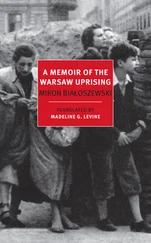‘He left yesterday morning and will be gone until tomorrow.’
‘Does he know I’m here?’
‘I told him we were sending for someone who could help Irene.’
‘But not a Jew.’
‘No, that was my decision,’ she said firmly.
‘Mrs Lanik, I may have been reduced to nearly nothing, but that doesn’t mean I don’t have a life. I have to get back to the ghetto.’
‘Dr Cohen, please just give my daughter a half-hour of your time. She needs help. I’ll pay you whatever you want.’
I grinned maliciously. ‘Why do you people always think you can buy a Jew with money?’
‘You know that’s not what I meant,’ she replied angrily, but she added in a contrite voice, ‘though I suppose I deserved that.’
‘Look, why should I help you?’
‘Given the unfairness of the world and all that’s happened to your people, maybe you shouldn’t,’ she observed.
Her honesty impressed me. ‘Very well, tell me what’s wrong with your daughter,’ I requested in a business-like tone.
‘A few days ago, she tried to take her own life – with pills. She won’t talk to me about what’s bothering her. She’ll only talk to you.’
‘Me? How does she know about me?’
‘Irene found out you were a well-known psychiatrist before you were…’ She searched for the word; her German was excellent, but she was clearly under an enormous strain.
‘ Emprisonné ,’ I suggested.
‘Yes, imprisoned,’ she agreed.
I discovered that day that Mrs Lanik stepped cautiously through her thoughts, as though searching for hidden motives in herself and others. As a consequence, all her responses were delayed. It was unnerving. I began to believe she led an isolated life – and conversed with very few people.
‘Where is your daughter?’ I asked.
‘She refuses to leave her room. I’m losing my mind.’ She clutched at the collar of her blouse. ‘If… if Irene should die…’
She loves her daughter as I loved Adam , I thought, and that changed the direction of all my subsequent actions.
‘Mrs Lanik,’ I said more gently, ‘how did you find my address?’
‘My husband is the chief physician for the German forces in Warsaw. It wasn’t hard to locate you.’
‘I don’t have much time. Take me to her.’
On the way up the curving central staircase to the gallery, I told her, ‘I’ll want to bring some things back to the ghetto with me – food mostly.’
‘What would you like?’
‘Find me a dozen lemons – two dozen if you can. I’ll also want cheese and meat, and good bread and coffee. And pipe tobacco – Achmed, if you can find it. And I’ll take you up on your offer to pay me – two hundred złoty per session.’
‘Of course, though it might be difficult to find so many lemons.’
‘If you can’t get them, I’ll need oranges or fresh cabbage.’
Standing in front of her daughter’s door, I faced Mrs Lanik again. To my surprise, I was embarrassed now about my shabby clothing and withered state – suddenly arm in arm with my desire to return to a normal life.
‘I want you to order the Germans to take me home in silence,’ I told her. ‘I won’t see your daughter unless they promise not to speak to me – or hurt me in any way.’
‘Very well. I’ll take care of it.’
‘And tell them not to touch any of the food you give me. You’re going to have to threaten them with reprisals.’
‘Leave it to me,’ she assured me. ‘Can we go in now?’
When I gave my permission, she knocked. ‘Irene…?’ she called softly, but there was no reply. ‘Dr Cohen is here. We’re coming in.’
She tried the door handle, but it was locked.
‘Irene, this is Dr Cohen,’ I began. ‘I don’t have much time. Let me in, please.’
The girl whispered through the door, ‘Only you, Dr Cohen, not my mother.’
Mrs Lanik shook her head violently, as if her daughter was sentencing her for a crime she hadn’t committed.
‘Irene will be safe with me,’ I told her. ‘Sit in the foyer, and when I come out we’ll talk about what I’ve learned. And bring me strong coffee, as well,’ I added, since the efficient heating in the house was making me drowsy. ‘When it’s ready, have your servant knock on the door and leave it on the floor. I’ll come out and get it.’
Mrs Lanik looked back as she crept down the stairs. She gripped the railing hard; I realized she was close to fainting.
I called to Irene through the door in German again, telling her that we were alone. After a few seconds, I heard the latch click. A blue eye peeked in the doorway.
Irene was a willowy girl, and nearly six feet tall, though she had the hunched posture of someone who had been taunted for years about her height.
After opening the door, she marched to the back of the room, anxious to put some distance between us. She had her mother’s short blonde hair and mesmerizing eyes. Her earrings were tiny silver bells.
She smiled at me fleetingly, standing between the head of her bed and a leather armchair positioned for a view out the window, then turned to the side abruptly, as though having just remembered to withhold her feelings. The oblique light from the afternoon sun made crescents of deep shadow under her eyes. The way she held her hands knitted tightly together seemed a bad sign.
She wore modest, impeccably pressed clothes – a silvery-green woollen skirt and an embroidered Ukrainian blouse. I had the sensation that they weren’t what she liked – that she dressed this way to please someone else.
Her shelves were neatly packed with books and stuffed animals. A Picasso print of a sad-faced harlequin was framed behind her bed.
‘Thank you for coming,’ she told me in an unsure voice. She spoke in German.
‘Thank you for letting me in,’ I replied.
She grabbed one of the blue silk cushions from her bed, took off her furry slippers and sat down in the armchair, folding her bare feet girlishly underneath her bottom. Placing the cushion over her lap, she leaned towards the window and gazed at the lawn below as if concerned about what might be taking place down there in her absence. Whether on purpose or not, she gave me a good look at the bald spot at the crown of her head where she must have been pulling out her hair.
A patient’s initial gestures often indicate how forthcoming they intend to be, and Irene had chosen to show me a symptom of her misery before even saying a word.
I sat down on her bed. Though the girl didn’t speak or look at me, I was at ease; this silence between myself and a patient had been a kind of home to me for many years.
‘Now, Irene, I’m just going to ask you some questions. Is that all right?’
‘Yes, I suppose so.’
I didn’t have much time, so I tried a shortcut that had worked for me in the past. ‘If you could go anywhere in the world, where would it be?’ I asked. I was hoping she’d accidentally reveal what was pursuing her by telling me her fantasy of escape.
‘You mean, where in Warsaw?’ she questioned.
She was afraid to dream too ambitiously, which likely meant she felt powerless to flee her predicament. ‘No, anywhere,’ I replied. ‘London, Rome, Cairo…’ Finding my professional voice again gave me confidence.
‘I’d go to France,’ she replied. ‘To Nantes.’
I heard Swiss vowels in her reply, though she was speaking High German.
‘Why Nantes?’ I asked.
‘Because my grandparents live there.’
‘Would you feel safer with them?’ I questioned.
Grimacing, she moved her cushion over her chest and clutched it tightly.
‘Are you all right?’ I asked.
Straining for breath, looking at me directly for the first time, she replied, ‘There’s a constriction in my chest that comes and goes. And when it’s bad, it’s like a big rough hand is pressing down on me. Sometimes I think I’m going to suffocate.’ She fixed me with a desolate look. ‘Dr Cohen, it’s this house… it terrifies me.’
Читать дальше












